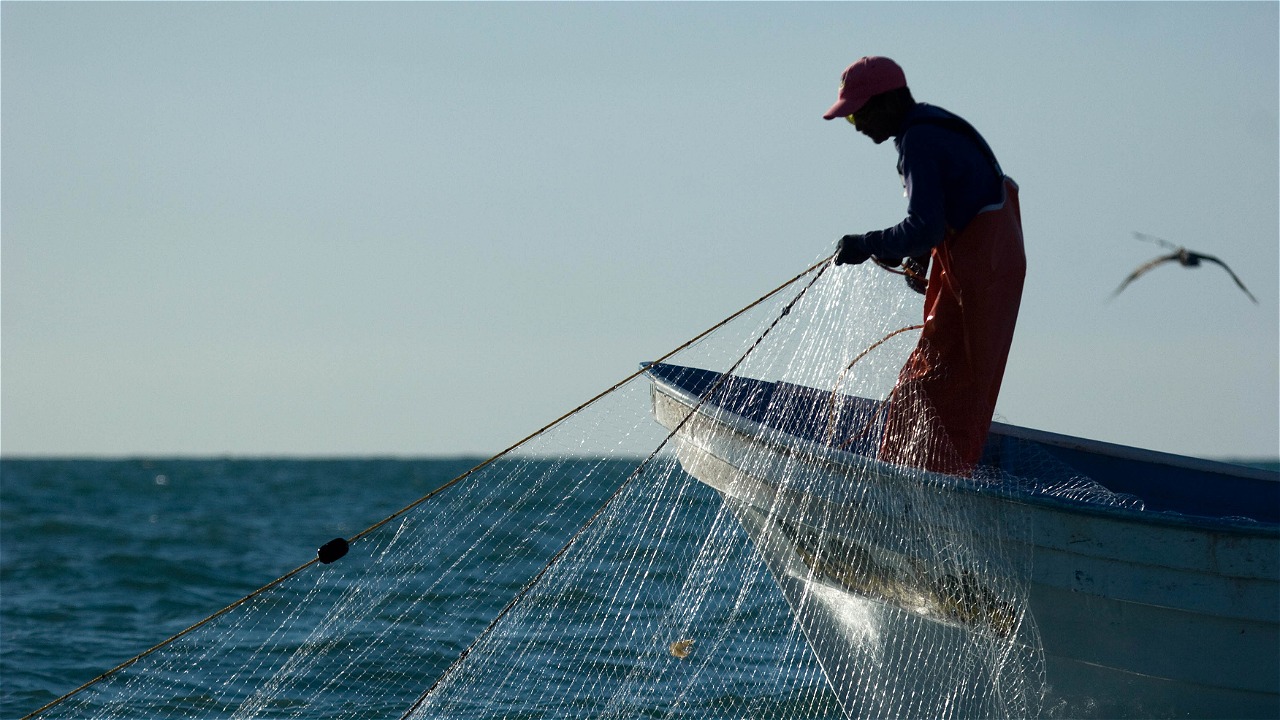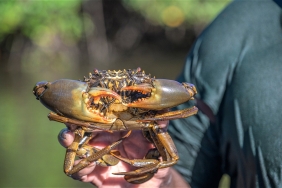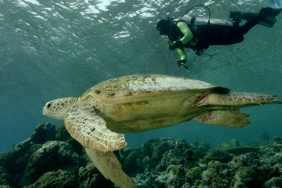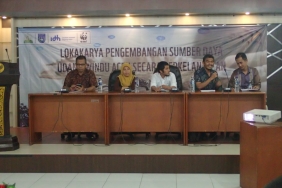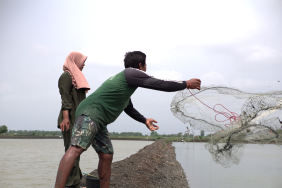TRADITIONS, CUSTOMS AND LOCAL WISDOM IN THE WORLD OF FISHERIES IN INDONESIA
By: Achmad Mustofa, marine and fisheries program officer, WWF-Indonesia who works daily to evaluate fisheries practices in Indonesia towards environmentally friendly activities. The author is a graduate of the Department of Marine Science, UNDIP, Semarang. .
Every region in Indonesia has its own customs and beliefs related to the fishing process. Usually it is unique and has its own characteristics. The uniqueness and distinctiveness are the identity of each region, especially because of the differences. The difference in characteristics arises due to several reasons including religious background, customs, and hereditary heritage from ancestors.
Religion is one of the strong factors that drive an existing order in society. Religious guidance permeates every aspect of social life. Guidance is a value that becomes the foundation of norms. So, what does this value have to do with the characteristics of a region in relation to fishing? Yep, the influence of religion plays a big role in the way fishing is practiced in some regions in Indonesia. In Islam, Friday is a holy day where Muslims, especially men, perform Friday prayers. Therefore, fishermen from several regions in Indonesia choose to take Friday off, such as Berau, East Kalimantan; Pangandaran, West Java; and several other regions. In addition to Friday off, they are usually also off at the beginning of the fast, Eid al-Fitr/Eid al-Adha, and or on the days of Shawwal (after Eid al-Fitr, also known as syawalan).
Besides religion, another factor that colors fishing procedures in Indonesia is customs. One of the strong customs in some regions is larung laut. Larung laut is a submission of offerings to the ruler of the sea in order to be given abundant fish yields and protection when they catch fish. Regardless of the religious values that determine the rightness or wrongness of this activity, larung laut is usually carried out to coincide with certain moments such as syawalan. Fishermen in Demak, Central Java, usually perform this ritual at the beginning of the month of Shawwal. Larung laut is also held in Marunda Kepu, North Jakarta. Usually, a miniature ship containing offerings with a buffalo head and its insides, cigars, eggs, red and white porridge, seven kinds of flowers, and water that has been mixed with blood, by burning kemenyan or incense, is an offering for residents to be floated to the middle of the sea. Beforehand, prayers are read over the dishes to be floated. In addition to larung laut, there is also a custom of the Bajo community involving traditional leaders when starting a new fishing season, namely by performing rituals at sea.
The hereditary legacy of the ancestors has also shaped the community's fishing habits. The easiest to find are myths about sea ghosts, the prohibition of fishing when encountering whale sharks (whale shark- Rhincodon typus), and the prohibition of catching sea turtles. Sea ghost myths are found in almost all regions in Indonesia.
In Sibolga, North Sumatra, there was a fisherman who claimed to have encountered a sea ghost sighting, after which he became ill. A few years later, the fisherman recovered and returned to sea after being healed. Similar incidents have been found in East Solor, East Nusa Tenggara, especially in Watobuku and Moton Wutun villages, where sightings are often found around Tanjung Naga, especially in the area where Sewanggi Island is located. Sewanggi itself means "devil". Apparitions often seen there are ghost ships, fake corpses, demonic lights, and thick fog. The prohibition to go to sea when encountering whale sharks was found during surveys and studies on sharks in Cirebon and Muara Baru. The belief that the appearance of a whale shark is a sign of bad luck and must immediately turn towards land, is still strong and believed by most of the fishing community there. The prohibition of catching sea turtles because they are believed to cause pain to the catcher is found in the Banggai Islands, Central Sulawesi.
The uniqueness and uniqueness of the customs of the Indonesian people, especially in relation to fishing, is very diverse. Conservation efforts are made easier by the existence of myths or customs that indirectly mention the protection of certain species (sea turtles for example). Because of these beliefs, people will at least avoid catching these species.
Source :
- Experience sharing and discussion with fishermen in between data collection

